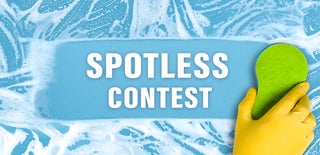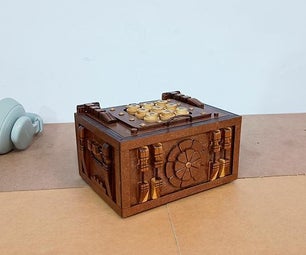Introduction: Citric Acid Gets a Shaker
Citric acid is convenient to have at hand for cooking, canning and cleaning.
It was during our first winter in Minnesota that citric acid earned it's place in a shaker on our shelves. The acid boost is good for immunity and digestive health. For me, a sore throat is always the first sign I'm getting sick and usually the virus moves from throat to the lungs.
In the past I've gargled salt and even added ACV (link to bulk) to tea. These steps helped but I was always looking for a more consistent way of comfortably making my throat less tolerable to bacteria. Adding just a couple shakes of citric acid to tea makes it taste a bit more sour but that's an easy taste to acquire.
Citric acid is also great for cleaning and I'll show you a couple examples from our kitchen.
Step 1: A Boost for Tea
The Value: The real win with citric acid is that with each sip of tea you create an environment intolerable for bacteria and virus's. Added bonus is that citric acid helps against allergies. This is a great thing and far better than taking another zyrtec!!
My Approach: For years I'd gargled salt water and used a netty pot. The problem is that you can't gargle and netty throughout the day. Easier with citric acid. The steps are simple:
- Make tea: caffeine-free if you're sick (we like sleepytime)
- Add a shake of citric acid
- Enjoy!
I like to dilute it pretty heavily if not using the CA to fight a sore throat. Typically one or two shakes in a water bottle. It also adds a slightly sour taste I've come to enjoy.
Don't have any citric acid? Load up with amazon's a bulk pack at $2.50/lb.
Note: Some of these are affiliate links, I will get a small commission if you buy through them (amazon:), at no additional cost to you. Thank you if you do buy through the links! If not, hopefully you will find the product details useful.
Step 2: Cleaning the Kettle
Before keeping citric acid in the shaker I had struggled with the persistent build up of spotting on our hot water kettles. The solution is so simple! (a quick search shows I'm not the first to post this tip on instructables, see here)
Our Kettles: We use them all the time! For coffee + tea, cooking and cleaning... We actually have two. One for the kitchen (better model) and one upstairs (one shown).
Cleaning: Really nothing to it!
- Add a small amount of water (one finger, to borrow terminology)
- Add two shakes of citric acid
- Boil. Clean.
Yes, it's really that simple.
Step 3: Baked on Grease
The Challenge: Baked on grease has always been a pain. It starts as a brown and gradually becomes black heavy spots. I use aluminum sheet pans and baking pans all the time. They are so convenient for managing a working kitchen. They've also become wildly popular for serving in restaurants.
The Process: This one is a bit more elaborate. The key benefit is that it reduces the need to scrub aggressively.
- Boil water with baking soda. (yes, also sold bulk but probably better at dollartree!)
- Pour onto pan and drain back into sauce pan
- Sprinkle on the citric acid +watch it bubble!
- Scrub lightly
- Repeat
In the photos you can see the difference I achieved in 3 passes. Not trying to win any awards for cleanliness around the kitchen (submitting for a creative approach for the cleanliness contest!). The regular cleaning is an easy way to prevent build up. It's easier when you just reuse the water from Cleaning the Kettle.
--I find a crazy number of uses around the kitchen for baking pans. The closest I could find on amazon are these aluminum baking pans. The overall dimensions are right but I think I'll have to start hitting estate sales to find more :)
--more on my approach to estate sales - www.instructables.com/id/Clean-Up-Atfrom-Estate-Sales/
Step 4: Cooking With Citric Acid
Cooking and Canning each could have their own instructable. Here's an easy one to try the next time you're grilling or baking chicken. Simply add a dash of Citric Acid. It adds an acidic layer to the flavors. Similar to adding a splash of vinegar to vegetables after they are cooked.
Step 5: Final Notes
Thank you for reading!
Hope you've found this useful and may consider adding citric acid to your spice kit! Also appreciate any comments or suggested uses you may have for CA. Follow to find more as I start walking through my Swiss Army Shelves.
Any other tips or recipes are certainly welcome!
Cheers, Jeff
A note on citric acid. Please know that just like the acidity in soda can be bad for your teeth so can drinking too much citric acid. That's why I typically dilute and only go stronger when trying to protect against a cold. CA can also cause corrosion if exposed to certain metals (inc aluminum) for extended periods during soaking.
---
Recommendations from the comments:
- nanaverm - add when making stock to leach calcium from bones and break down cartilage
- kellybamboo - use 2tbs to clean the toilet. Add to the bowl and the sides.
- jeremyR85 - suggests sulfamic acid as a more powerful cleaner that won't cause corrosion

Participated in the
Spotless Contest











